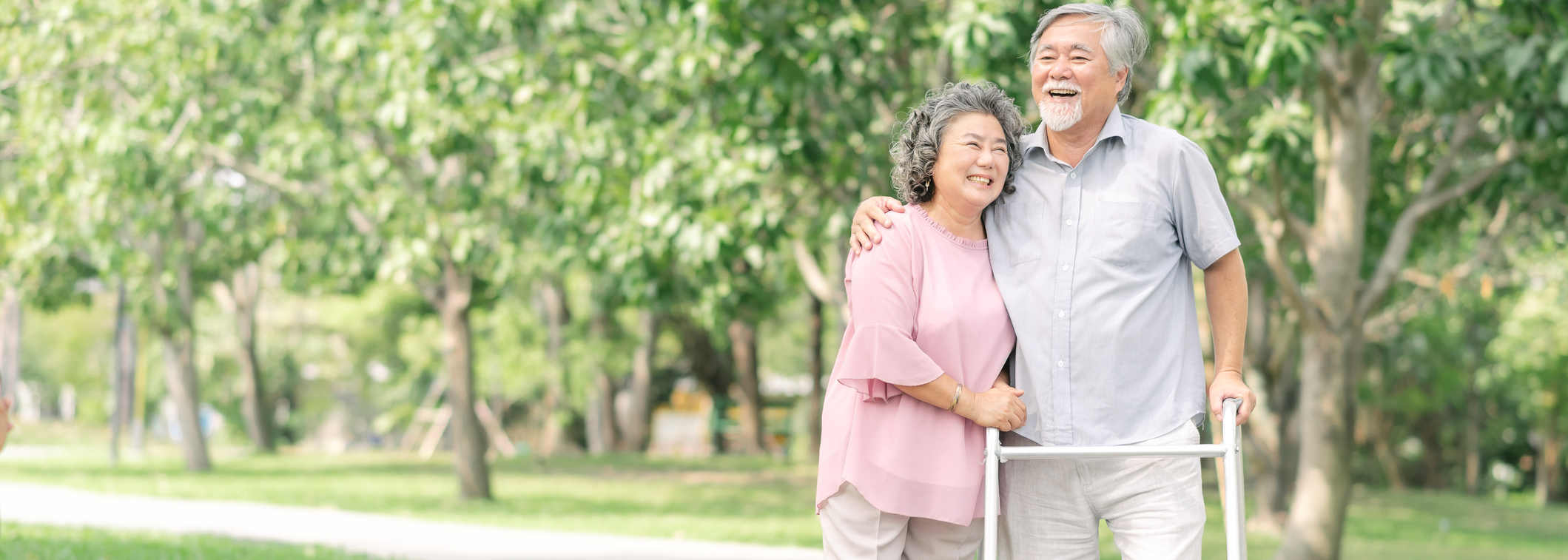Arthritis is characterised by joint pain and inflammation. There are two most common forms of arthritis: osteoarthritis (OA) and rheumatoid arthritis (RA).

Osteoarthritis (OA)
- A degenerative disease and the most common type of arthritis.
- Occurs due to the ‘wear-and-tear’ that affects the joints over time, particularly the weight-bearing joints in the spine, hip, and knee.
- The joint space becomes narrowed, and the cartilage lining of the joint becomes worn out, resulting in pain, stiffness, and lesser mobility.
- When the cartilage lining begins to roughen and weaken, the tendons and ligaments must exert tremendous effort. This can lead to the development of osteophytes (bone spurs). Severe loss of cartilage can cause bone-to-bone friction and alter the shape of the joint.
- Symptoms may occur intermittently and may be persistent in severe cases. Symptoms include:
- Joint pain and stiffness
- Joint tenderness
- Limited range of motion in your joints
- Crackling sound (crepitus) in your joints
- Joint swelling, which may appear in later stages of osteoarthritis
Rheumatoid Arthritis (RA)
- A chronic, autoimmune condition that primarily affects the joints. Typically, rheumatoid arthritis affects the joints symmetrically (both sides of the body simultaneously and to the same degree). Nevertheless, this may not be the same for every patient.
- Occurs when the immune system, which typically helps protect the body from diseases and infections, attacks healthy tissue.
- Although rheumatoid arthritis can affect any joint, the small joints in the hands and feet are usually affected at first.
- In most cases, rheumatoid arthritis symptoms develop gradually over several weeks; however, in certain cases, the condition can progress rapidly over several days.
- Symptoms can vary from person to person. When the condition deteriorates and symptoms worse, you may experience flares. Symptoms include:
- Morning stiffness of the joint that does not improve after an hour
- Joint pain that is worse in the morning
- Swelling, redness and warm joint
- Joint deformities and contractures
- Fatigue
- Poor appetite
- Weight loss
- Fever
Risk factors for Osteoarthritis and Rheumatoid Arthritis
- Risk of developing OA or RA increases with age
- Commonly seen in women
- Family history and genetics
- Being overweight or obese
- Smoking
- Joint injury or overuse of joint may cause joint damage and increases the likelihood of osteoarthritis
Diagnosis of Osteoarthritis and Rheumatoid Arthritis
Your doctor would first question your general health and symptoms before conducting a thorough physical examination.
Diagnosis is made based on your reported symptoms, physical examination, and investigations.
Blood tests
Blood tests for osteoarthritis may not be necessary in most cases but can be done to rule out other causes, such as rheumatoid arthritis.
Blood tests for rheumatoid arthritis include:
Erythrocyte sedimentation rate (ESR) to assess levels of inflammation in the body.
Rheumatoid factor (RF) and anti-cyclic citrullinated peptide (anti-CCP) test to help diagnose rheumatoid arthritis.
Full blood count (FBC) as an indicator of your general health or to rule out causes of your symptoms.
Imaging tests such X-rays and magnetic resonance imaging (MRI) scans to check for joint inflammation and damage as well as disease progression.
Treatment options for Osteoarthritis and Rheumatoid Arthritis
Although osteoarthritis and rheumatoid arthritis have no known cure, early treatment and support can decrease the likelihood of joint damage.
Osteoarthritis (OA)
- Medications
- Non-steroidal anti-inflammatory drugs (NSAIDs) to reduce pain and inflammation.
- Opioids such as codeine to relieve pain.
- Capsaicin cream to apply locally on your hands and knees if topical NSAIDs were ineffective.
- Steroid injections if other medications did not relieve symptoms.
- Hot or cold packs
- To relieve pain and symptoms.
- Assistive devices
- Special footwear or insoles
- Walking aid if it affects your mobility
- Physiotherapy
- To improve muscle strength and make your joints more flexible.
- Surgery
- May be recommended if symptoms persist despite medications.
- May be required to help restore the ability to use your joint if your joint is damaged.
Rheumatoid Arthritis (RA)
- Medications
- Disease-modifying anti-rheumatic drugs (DMARDs) such as Methotrexate and Sulfasalazine are used to slow down the progress of the disease and ease symptoms.
- Biological treatments such as Adalimumab and Etanercept.
- JAK inhibitors for adults with moderate to severe rheumatoid arthritis. It is mostly offered for those who cannot take DMARDs or biologicals.
- NSAIDs such as ibuprofen or naproxen for pain relief.
- Steroids to reduce pain, inflammation, and stiffness.
- Physiotherapy
- To improve muscle strength and make your joints more flexible.
- Surgery
- May be recommended if symptoms persist despite medications.
- May be required to help restore the ability to use your joint if your joint is damaged.
Make an appointment at Gleneagles Hospitals
If you are experiencing any of the symptoms of osteoarthritis or rheumatoid arthritis, get in touch with us to find out more about our Orthopaedic Services at your nearest Gleneagles Hospital.
Gleneagles Hospital works with orthopaedic specialists to assist patients through diagnosis and treatment. The caring and multidisciplinary team of healthcare professionals are available for consultation and to provide the best care.



